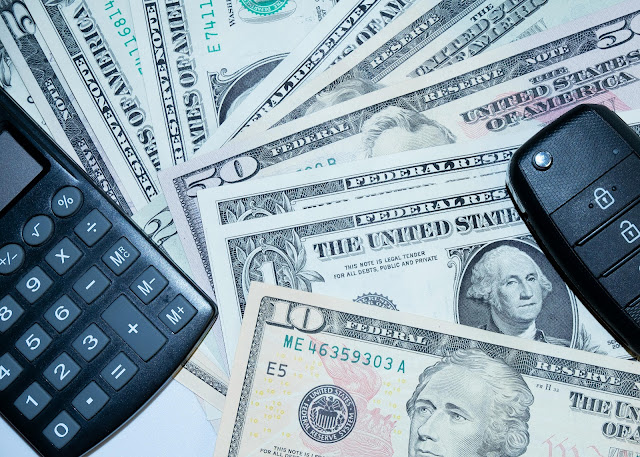Buying a car can feel like a win until the loan paperwork hits your hands. Suddenly, what seemed like a straightforward deal becomes layered with fine print, interest rates, and repayment terms that sound like another language.
Here’s the truth: a car loan is a big commitment. And the way it’s structured can either work for you or quietly drain your wallet over the years. So before you agree to anything, take a step back. Breathe. Then start asking questions. We’re not talking about vague ones, but the specific ones that uncover what you’re really signing up for.
Let’s get into the six most important questions to ask before putting pen to paper.
1. What’s the total cost of the loan, not just the monthly repayments?
It's easy to get caught up in the monthly number. It sounds manageable, so it must be fine, right? Not quite.
Monthly repayments don’t tell the full story. What really matters when assessing car loans is how much you’re paying in total over the life of the loan. That includes principal and all the interest you’ll be charged. A lower monthly payment stretched over more years might seem better at first glance, but it often means paying thousands more in interest.
You need to ask: “What’s the total amount I’ll pay back over the entire loan term?” That number can be confronting. But it’s the one that matters most.
2. Is the interest rate fixed or variable?
This can make a big difference to how predictable or unpredictable your repayments will be.
A fixed interest rate stays the same for the full loan term. That means your repayments don’t change. It’s consistent, and you can plan around it.
A variable rate, on the other hand, can go up or down depending on market conditions. That might work in your favour if rates drop, but if they rise, you could end up paying more.
Make sure you’re clear on what type of interest you’re agreeing to. And ask yourself whether you’re comfortable with potential changes in your repayment amount.
3. Are there any extra fees I should know about?
Spoiler: there probably are.
Car loans often come with a list of fees that aren’t always obvious until you read the fine print or ask the right questions. These can include:
- Application fees – charged when you first apply
- Ongoing account fees – monthly or annual charges just to keep the loan active
- Late payment fees – extra costs if you miss a payment
- Early repayment or exit fees – penalties if you pay the loan off early
Some lenders won’t highlight these unless you ask directly. So do. It’s better to feel annoying and get clarity than be surprised later by hidden charges.
4. Can I make extra repayments or pay off the loan early without penalties?
This is a big one, especially if your income changes or you get a lump sum and want to clear the debt faster. Not all lenders allow this without charging fees. Some will let you make extra repayments, but only up to a certain amount each year. Others might slap on an early exit fee if you try to pay the loan off ahead of schedule.
Why does this matter? Because being able to chip away at your loan when you have the means to do so can save you a heap in interest over time. Flexibility is power. Make sure to ask: “If I pay more than the required amount, will I be charged for that?”
5. What happens if I miss a payment or run into financial trouble?
Life happens. Maybe you lose work, or a big expense throws your budget off course. Missing a repayment isn’t always avoidable. So it’s important to understand how the lender handles that.
Some will allow a grace period or offer a hardship policy. Others are far less forgiving and will charge late fees or report the missed payment to credit reporting agencies, which can hurt your credit score.
You should also ask what options are available if your financial situation changes and you need to renegotiate the loan. Find out how flexible they are before you ever need that flexibility.
6. What’s the comparison rate, and how does it differ from the advertised rate?
The interest rate you see on a billboard or website is often the advertised rate. However, the comparison rate includes that rate plus most of the fees and charges that come with the loan.
That’s why the comparison rate is more realistic; it gives you a clearer picture of what you’ll actually be paying. It’s your apples-to-apples tool for comparing loans from different lenders.
If a loan looks cheap but has a high comparison rate, you’ll know there are extra costs baked in. Don’t skip this. Ask: “Can you tell me the comparison rate and what fees are included in it?” It can reveal a lot about the true cost of what you’re signing up for.
Don’t Rush the Decision
When it comes to car loans, hesitation isn’t a bad thing. It shows you’re being smart with your money. Too many people walk into dealerships or lender meetings thinking they need to make a quick decision, but the long-term cost of rushing can be steep.
There’s no shame in walking away from a deal that doesn’t feel right or asking for time to review everything properly. And if the answers to your questions aren’t clear or the lender seems evasive, that’s a red flag. The more you ask now, the fewer regrets you’ll have later.

